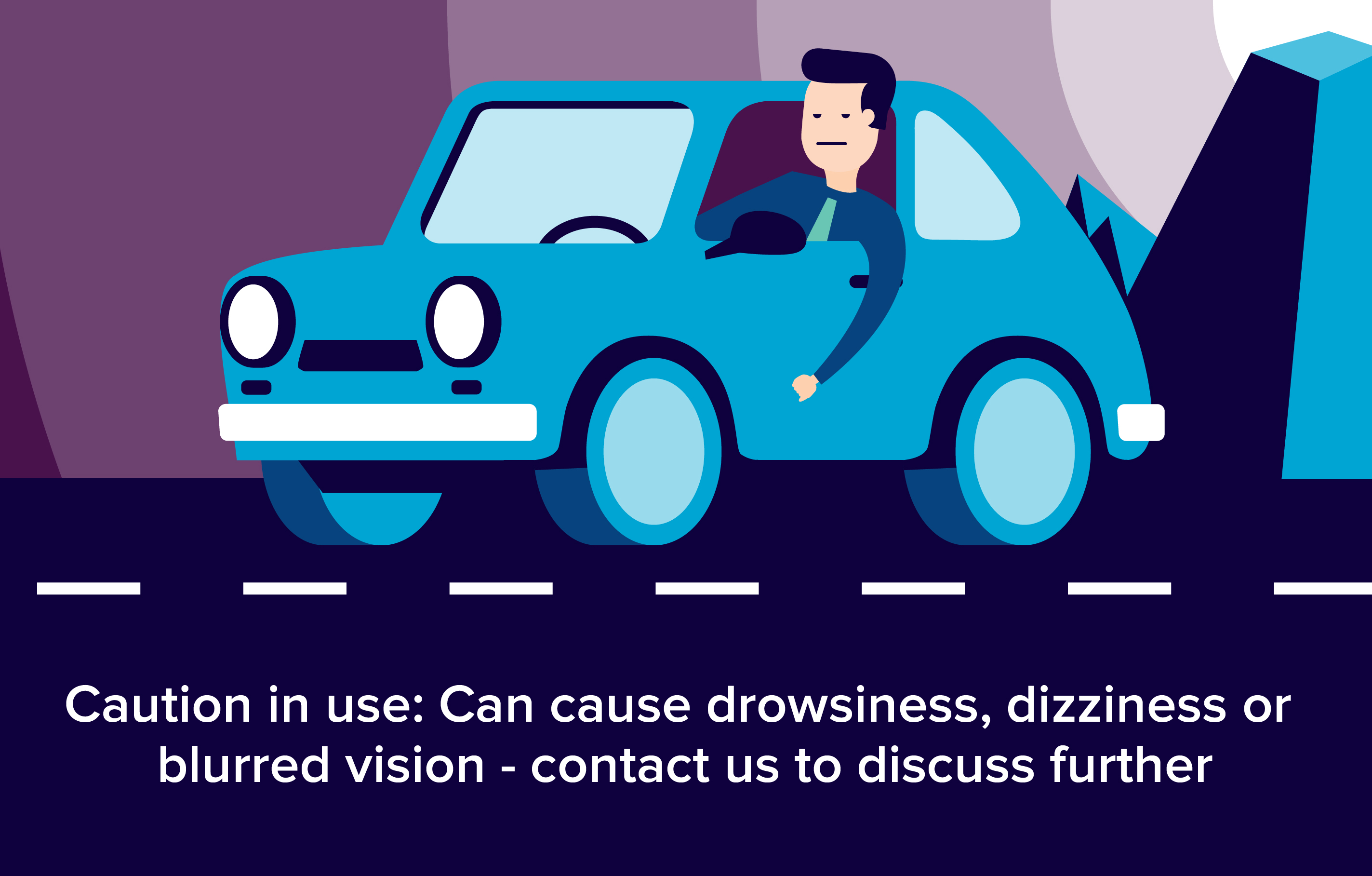Miramel (pramipexole) tablets and Miramel (pramipexole) prolonged-release tablets both contain the active ingredient pramipexole, which is a type of medicine called a dopamine agonist.

What is it used for?
- Parkinson's disease.
- Moderate to severe restless legs syndrome.
How does it work?
- Miramel (pramipexole) tablets and Miramel (pramipexole) prolonged-release tablets both contain the active ingredient pramipexole, which is a type of medicine called a dopamine agonist.
- Pramipexole works by mimicking the activity of a substance in the brain called dopamine.
- Dopamine is a substance known as a neurotransmitter. Neurotransmitters are present in the brain and nervous system and are involved in transmitting messages between nerves. These messages allow the normal functioning of the body. The neurotransmitter dopamine is known to be reduced or absent in the brains of people with Parkinson's disease, and this is thought to be the cause of the disease symptoms.
- Dopamine normally transmits messages by stimulating specific receptor sites in the brain.
Use with caution in
- Decreased kidney function.
- Psychotic illness.
- Severe disease involving the heart and blood vessels (cardiovascular disease).
Not to be used in
- Breastfeeding.
- The safety and efficacy of this medicine have not been established in children and adolescents under 18 years of age. It is not recommended for this age group.
- This medicine should not be used if you are allergic to any of its ingredients. Please inform your doctor or pharmacist if you have previously experienced such an allergy.
If you feel you have experienced an allergic reaction, stop using this medicine and inform your doctor or pharmacist immediately.
Pregnancy and breastfeeding
Certain medicines should not be used during pregnancy or breastfeeding. However, other medicines may be safely used in pregnancy or breastfeeding providing the benefits to the mother outweigh the risks to the unborn baby. Always inform your doctor if you are pregnant or planning a pregnancy, before using any medicine.
- The safety of this medicine in pregnancy has not been established. It should not be used during pregnancy unless considered essential by your doctor, and only if the benefits to the mother outweigh any potential risks to the foetus. Seek medical advice from your doctor.
- It is not known if this medicine passes into breast milk, however it is expected that it may suppress the production of breast milk. Consequently this medicine should not be used during breastfeeding. If treatment with this medicine is considered essential, breastfeeding should be stopped. Seek medical advice from your doctor.
Side effects
Medicines and their possible side effects can affect individual people in different ways. The following are some of the side effects that are known to be associated with this medicine. Just because a side effect is stated here, it does not mean that all people using this medicine will experience that or any side effect.
When treating Parkinson's disease:
Very common
- Dizziness.
- Difficulty performing voluntary movements, resulting in jerky or involuntary movements or muscle twitches (dyskinesia).
- Sleepiness.
- Nausea.
Common
- False perceptions of things that are not really there (hallucinations).
- Abnormal dreams.
- Difficulty sleeping (insomnia).
- Confusion.
- Headache.
- Decreased blood pressure (hypotension).
- Visual disturbances such as double or blurred vision.
- Constipation.
- Vomiting.
- Fatigue.
- Swelling of the legs and ankles due to excess fluid retention (peripheral oedema).
- Decreased appetite and weight loss.
Uncommon
- Problems controlling impulses and behaviour, for example compulsive shopping or gambling, binge eating.
- Changes in sex drive.
- Paranoia or delusions.
- Memory loss.
- Restlessness.
- Suddenly falling asleep (see warning section above).
- Fainting.
- Shortness of breath.
- Hiccups.
- Weight increase.
- Skin reactions, such as itching, rash.
When treating restless legs syndrome:
Very common
- Nausea.
Common
- Abnormal dreams.
- Difficulty sleeping (insomnia).
- Dizziness.
- Sleepiness.
- Headache.
- Constipation.
- Vomiting.
- Fatigue.
Uncommon
- Problems controlling impulses and behaviour, for example compulsive shopping or gambling, binge eating.
- Changes in sex drive.
- Paranoia or delusions.
- False perceptions of things that are not really there (hallucinations).
- Confusion.
- Memory loss.
- Restlessness.
- Suddenly falling asleep.
- Fainting.
- Decreased blood pressure (hypotension).
- Difficulty performing voluntary movements, resulting in jerky or involuntary movements or muscle twitches (dyskinesia).
- Visual disturbances such as double or blurred vision.
- Shortness of breath.
- Hiccups.
- Weight changes.
- Skin reactions, such as itching, rash.
The side effects listed above may not include all of the side effects reported by the medicine's manufacturer.
For more information about any other possible risks associated with this medicine, please read the information provided with the medicine or consult your doctor or pharmacist.
How can this medicine affect other medicines?
It is important to tell your doctor or pharmacist what medicines you are already taking, including those bought without a prescription and herbal medicines, before you start treatment with this medicine. Similarly, check with your doctor or pharmacist before taking any new medicines while taking this one, to ensure that the combination is safe.
There may be an increased risk of sleepiness and suddenly falling asleep if this medicine is taken in combination with any of the following (which can also cause drowsiness):
- alcohol
- benzodiazepines, eg diazepam
- strong opioid painkillers, eg morphine, codeine
- sedating antihistamines, eg chlorphenamine
- sleeping tablets, eg zopiclone
- tricyclic antidepressants, eg amitriptyline.
The following medicines may increase the blood level of pramiprexole:
- amantadine
- cimetidine.
If any of these medicines are taken with pramipexole your doctor may need to decrease your pramipexole dose.
Antipsychotic medicines should be avoided in people taking this medicine. This is because antipsychotics are likely to oppose the effect of this medicine, because they work by decreasing the activity of dopamine in the brain.
References:
http://www.netdoctor.co.uk/medicines/brain-and-nervous-system/a7129/mirapexin-pramipexole/
http://www.hpra.ie/img/uploaded/swedocuments/2128661.PA0126_173_003.cede8999-7d28-44c5-a23e-a39251c75a20.000001Product%20Leaflet%20Approved.131129.pdf
http://clonmelhealthcare.ie/wp-content/uploads/spc/Miramel_PA_126-173-1-3_W_(Miramel_tab_Feb_2013).pdf
http://www.medicines.ie/medicine/6812/SPC
https://www.drugs.com/international/miramel.html

